| Listing 1 - 10 of 63 | << page >> |
Sort by
|
Book
ISBN: 1280033347 9786610033348 9264181288 9264171878 Year: 2000 Publisher: Paris : Organisation for Economic Co-operation and Development,
Abstract | Keywords | Export | Availability | Bookmark
 Loading...
Loading...Choose an application
- Reference Manager
- EndNote
- RefWorks (Direct export to RefWorks)
This volume contains an analysis of energy policy and energy market developments in the Member countries of the International Energy Agency, including summaries of in-depth energy policy reviews of Finland, Hungary, Ireland, Italy, Japan and Switzerland which took place during the September 1998 to June 1999 annual cycle. The full reviews are published separately. It also includes shorter reviews of policy developments in Australia, Belgium, New Zealand, Norway, Spain and Turkey; energy balances and key statistical data of all Member countries; and key energy statistics over a 20-year period.
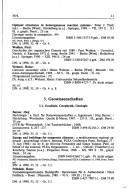
ISBN: 0080366171 Year: 1989 Publisher: Oxford New York Toronto Pergamon Press
Abstract | Keywords | Export | Availability | Bookmark
 Loading...
Loading...Choose an application
- Reference Manager
- EndNote
- RefWorks (Direct export to RefWorks)
628.8 <063> --- Architecture and climate --- -Architecture and energy conservation --- -Energy conservation and architecture --- Energy efficient buildings --- Energy conservation --- Architecture --- Climate and architecture --- Climatology --- Indoor climate. Air conditioning. Heating. Ventilating--Congressen --- Congresses --- Climatic factors --- Influence of climate --- -Indoor climate. Air conditioning. Heating. Ventilating--Congressen --- 628.8 <063> Indoor climate. Air conditioning. Heating. Ventilating--Congressen --- Architecture and energy conservation --- Energy conservation and architecture --- Congresses. --- Mediterranean region --- Architecture and climate - Mediterranean Region - Congresses. --- Architecture and energy conservation - Mediterranean Region - Congresses. --- Zero energy buildings
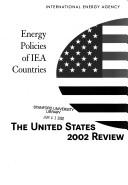
ISBN: 128003579X 9786610035793 9264191976 9264197621 Year: 2002 Publisher: Paris : OECD Publishing,
Abstract | Keywords | Export | Availability | Bookmark
 Loading...
Loading...Choose an application
- Reference Manager
- EndNote
- RefWorks (Direct export to RefWorks)
The International Energy Agency's 2002 review of US energy policies and programmes. It finds that US energy policy has an influence on energy policy throughout the world. The 2001 National Energy Policy is an important development. The US is taking unilateral action as an alternative to the Kyoto Protocol. This report urges consideration of legislation on carbon dioxide and adoption of policies allowing international trading in emissions. Strengthening fuel economy standards is an encouraging approach to energy use in transport. Different standards for cars and light trucks should be addressed as a priority. Policies to promote new sources of energy supply should be balanced by continuing effort to enhance efficient use of energy. Regional Transmission Operators are a sensible means of ensuring access to transmission and the functioning of a competitive wholesale market. The power crisis in California has slowed progress on market reform; confidence should be restored to reactivate reform and to create certainty for new investment. Harmonised electricity industry standards and regulations could help promote competition and encourage investment. Barriers to exploration for oil and gas need to be addressed. Drilling in new onshore and offshore areas, meeting acceptable environmental standards, is necessary or imports must rise. Refineries are operating at full capacity; pressure could be eased by reducing the range of products they are required to produce to meet regional standards. Coal use will remain important and could be environmentally sustainable with advanced clean coal technology. Re-licensing of existing nuclear plants, consistent with safety standards, could ensure nuclear power plays a continuing role, even if new plants remain uneconomic. The decision on the Yucca Mountain repository will be important for the future of nuclear power worldwide.
Energy consumption. --- Energy policy. --- Power resources. --- Energy conservation --- Power resources --- Energy policy --- United States
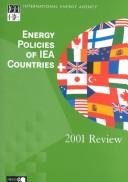
ISBN: 9264196595 9786610035724 1280035722 9264195785 Year: 2002 Publisher: Paris : Organisation for Economic Co-operation and Development,
Abstract | Keywords | Export | Availability | Bookmark
 Loading...
Loading...Choose an application
- Reference Manager
- EndNote
- RefWorks (Direct export to RefWorks)
This volume contains an analysis of energy policy and energy market developments in Member countries of the International Energy Agency. Among its highlights are summaries of in-depth energy policy reviews of Australia, Belgium, the Czech Republic, New Zealand, Spain and Turkey which were conducted October 2000 to June 2001. The full reviews are published separately. It also includes short reviews of policy developments in Finland, Hungary, Ireland, Italy, Japan and Switzerland as well as energy balances and key statistical data for all Member countries and key energy statistics for the past 2
OECD countries --- Energy policy --- Reviews --- Energy conservation. --- Energy policy. --- Power resources.
Book
ISBN: 9289413506 Year: 2002 Publisher: Luxembourg Office des publications officielles des Communautés européennes
Abstract | Keywords | Export | Availability | Bookmark
 Loading...
Loading...Choose an application
- Reference Manager
- EndNote
- RefWorks (Direct export to RefWorks)
Energy policy --- Energy consumption --- Energy conservation --- Politique énergétique --- Energie --- Economies d'énergie --- Consommation --- Politique énergetique
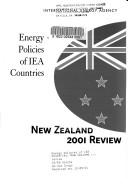
ISBN: 9264186441 9786610035618 1280035617 9264192514 Year: 2001 Publisher: Paris : OECD Publishing,
Abstract | Keywords | Export | Availability | Bookmark
 Loading...
Loading...Choose an application
- Reference Manager
- EndNote
- RefWorks (Direct export to RefWorks)
The International Energy Agency's 2001 review of New Zealand's energy policies and programmes. It finds that New Zealand is very active in all areas of energy policy. This report focuses on electricity deregulation and on policies to reduce greenhouse gas emissions. But gas supply depletion and the 1998 Auckland power failure are reminders of the fundamental importance of energy security. New Zealand is working towards ratifying the Kyoto Protocol by mid-2002, the only OECD country to make such a commitment outside the European Union. Agriculture is the main contributor to greenhouse emissions in New Zealand. Electricity generation contributes very little at present. The focus should be on agriculture and transport. International agreement on emissions trading and sinks, on which progress has been slow, is vital to New Zealand’s approach. New Zealand is preparing a National Energy Efficiency and Conservation Strategy. Attention needs to be given to transport. Residential energy consumption must not be allowed to grow too fast, as the economy recovers. New Zealand has demonstrated that electricity market liberalisation can succeed in a small country, although government shareholdings remain high, and the government owns Transpower, the transmission and system operator. Small consumers have not always benefited from changes in the electricity market. The government’s Power Package aims to strengthen industry self-governance, to bring the benefits of market reform to the retail market, and to address weaknesses in industry regulation. New Zealand’s approach to energy sector regulation is unique in the world. The report discusses the strengths and weaknesses of New Zealand’s regulatory system.
OECD countries --- Energy policy --- Reviews --- New Zealand --- Energy conservation --- Energy consumption

ISBN: 0792307321 9780792307327 Year: 1990 Volume: 12730 Publisher: Dordrecht Kluwer Academic
Abstract | Keywords | Export | Availability | Bookmark
 Loading...
Loading...Choose an application
- Reference Manager
- EndNote
- RefWorks (Direct export to RefWorks)
Architecture --- Daylighting --- Architecture and solar radiation --- Architecture and climate --- Architecture and energy conservation --- Congresses. --- Congresses --- Architecture - Congresses. --- Architecture and solar radiation - Congresses. --- Architecture and climate - Congresses. --- Architecture and energy conservation - Congresses. --- Daylighting - Congresses.
Periodical
ISSN: 02708019 Year: 1975 Publisher: Washington Worldwatch Institute
Abstract | Keywords | Export | Availability | Bookmark
 Loading...
Loading...Choose an application
- Reference Manager
- EndNote
- RefWorks (Direct export to RefWorks)
Human ecology. --- Conservation of natural resources. --- Energy conservation. --- Power resources. --- Écologie humaine --- Conservation des ressources naturelles --- Économies d'énergie --- Ressources énergétiques --- Conservation of natural resources. --- Energy conservation. --- Human ecology. --- Power resources.
Book
ISBN: 9289405147 9789289405140 Year: 2000 Publisher: Luxembourg Bureau voor Officiële Publicaties der Europese Gemeenschappen
Abstract | Keywords | Export | Availability | Bookmark
 Loading...
Loading...Choose an application
- Reference Manager
- EndNote
- RefWorks (Direct export to RefWorks)
Environmental protection. Environmental technology --- Relation between energy and economics --- European Union --- Sustainable development --- Energy conservation --- Environmental aspects --- Sustainable development - Environmental aspects - European Union countries --- Energy conservation - Environmental aspects - European Union countries --- Politique et protection de l'environnement
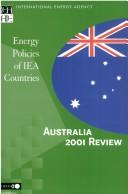
ISBN: 1280035641 9786610035649 9264193243 9789264193246 9264187332 Year: 2001 Publisher: Paris : OECD Publishing,
Abstract | Keywords | Export | Availability | Bookmark
 Loading...
Loading...Choose an application
- Reference Manager
- EndNote
- RefWorks (Direct export to RefWorks)
The International Energy Agency's 2001 review of Australia's energy policies and programmes. It finds that Australia is rich in low-cost energy resources, especially coal. The country exports large amounts of coal, liquefied natural gas and uranium to the Asia-Pacific region and beyond. This contributes to international availability and security of energy supply. Efforts are under way to increase LNG exports and to make Australian coal even more competitive. For most of the past decade, Australia has been at the forefront of energy market liberalisation. Following liberalisation by individual states in the early 1990s, the competitive National Electricity Market was established in 1998. The NEM integrates markets across the eastern and south-eastern states. The benefits have been considerable: strong competition, significant price reductions and consumer choice. Gas market reform has been under way since 1997 and is beginning to yield the first benefits. More work is needed to complete the reform process. In the power market, this includes open access for all consumers and providing efficient price signals for interconnection. The Australian government spends almost A$ 1 billion on climate change mitigation programmes. Many of these programmes are market-oriented, including a mandatory certificates trading system.
Coal -- Australia. --- Energy conservation -- Australia. --- Energy policy -- Australia. --- Natural gas -- Australia. --- Energy policy --- Energy industries --- Industries --- Power resources --- Australia
| Listing 1 - 10 of 63 | << page >> |
Sort by
|

 Search
Search Feedback
Feedback About
About Help
Help News
News